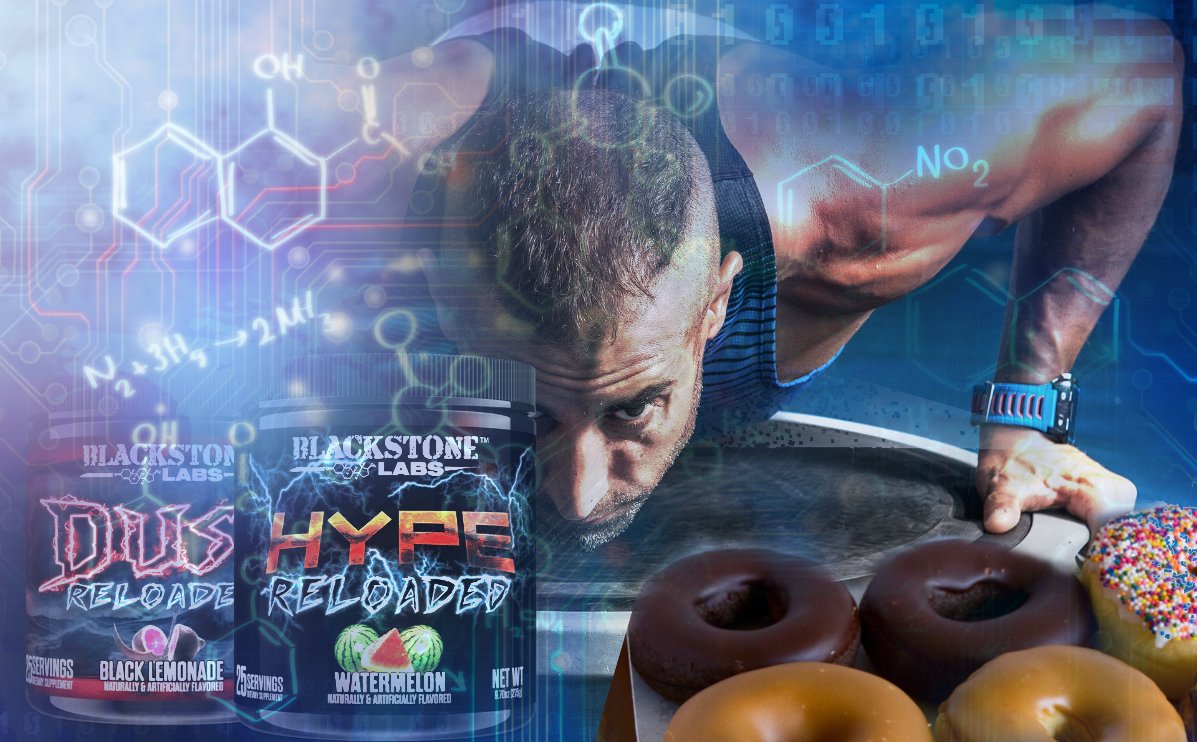If you're a bodybuilder looking to maximize your performance and physique, then pre-workout nutrition is an essential way to do just that. It's important to know the basics of pre-workout nutrition in order to reap the most benefit from it. In this article, I'm going to break down everything pre-workout, from actual nutrition to your mindset and actual mental state when you hit the gym. Let's get started.
Fasted vs Non-Fasted Training - Should You Eat At All?

When it comes to pre-workout nutrition, the most common question is whether or not you should eat at all prior to working out. On one hand, there are advocates of fasted training – which means that no food is consumed prior to weight lifting. On the other hand, many athletes opt for a pre-workout meal in order to maximize performance and energy levels. Let's break down the pros and cons of each approach so you can decide which strategy works best for you.
Fasted Training:
The Drawbacks
Non-Fasted Training:
The Bottom Line
Whether you choose to eat prior to working out or not, both methods have their own pros and cons. Ultimately, it comes down to personal preference as to which option works best for you. However, if your main goal is fat loss then lean towards fasted training. If performance and muscle recovery are more important, then a pre-workout meal may be beneficial.
‘Slow Digesting’ vs ‘Fast Digesting’ Carb Sources

Another important factor to consider when it comes to pre-workout nutrition is the type of carbohydrates you consume. Depending on your goals, different types of carbs can be beneficial. Let’s break down the two main categories: ‘slow digesting’ and ‘fast digesting’ carbs.
Slow Digesting Carbs
Fast Digesting Carbs
The Bottom Line
Slow digesting carbs are generally preferable for pre-workout nutrition as they provide a steady supply of energy without any post-workout crash. However, fast digesting carbs may be beneficial if you need an immediate energy boost before your workout and don’t mind the potential crash afterwards.
Effects of Protein and Fat Pre-Workout

In addition to carbohydrates, protein and fat should also be taken into consideration when preparing a pre-workout meal. Both are important macronutrients that can help support performance and muscle recovery.
Protein
Fat
5 Example Pre-Workout Meals:
Stimulant vs Non-Stimulant Training

Stimulants like caffeine have been shown to boost performance in the gym. However there is a catch 22: while you might be able to increase intensity and nervous system activation with stimulants, which can be useful for pushing the boundaries of your training - stimulants are also vasoconstrictive.
This means that they limit the amount of bloodflow to the brain as well as the muscle. Training without stimulants enhances the 'pump' of a workout, and also increases the mind-muscle connection.
This is why more and more people are beginning to prefer a stim-free pre-workout blend. That being said, I still believe high-stim pre-workouts have their place in training, or even for work and life as needed in appropriate doses. Experiment with both to find out which one works best for you!
Using Vasodilators Like L-Citrulline to Your Advantage

Vasodilators are substances that help to increase blood flow and oxygen delivery to your muscles. This can be extremely beneficial for pre-workout nutrition as it helps you get more out of your workouts by providing the necessary nutrients and oxygen to your muscles. L-Citrulline is a great source of vasodilation, and can be found in many pre-workout supplements on the market today.
L-Citrulline (or citrulline malate) helps improve pumps as well as endurance, research shows that taking 8 grams of citrulline before a workout can lead to greater improvements in strength and power output.
It's also a potent part of watermelon juice or watermelon extract, which on its own contains an amazing electrolyte profile and vasodilating ingredients. Vasodilators also help to increase nitric oxide production, which can lead to greater outputs in growth hormone as well as improved blood flow.
The Mind-Muscle Connection, Acetylcholine, and Huperzine A

The mind-muscle connection is the ability to focus on and control the contraction of specific muscles or muscle groups, as opposed to just relying on momentum or simply going through the motions.
Research has shown that enhancing acetylcholine (a neurotransmitter) can help increase this connection as it plays an important role in motor unit recruitment and muscle activation.
You can increase acetylcholine a few ways, namely by taking a source of choline, such as cdp-choline, alpha-gpc, or choline bitartrate - or by inhibiting the enzyme in the brain that helps break it down.
Huperzine A is a compound found in some pre-workout supplements that can help increase acetylcholine levels by inhibiting the enzyme acetylcholinerase, which breaks down acetylcholine. Most pre-workouts on the market these days contain some form of acetylcholine as well as huperzine A.
This pair alone is highly synergistic and gives you a real 'tunnel vision' focus without any stimulants at all. When combined with stimulants and other nootropics, it helps set in motion a chain of reactions that leads to increased dopamine and norepinephrine production. This can help improve the mind-muscle connection, leading to better focus and engagement during your workout.
The Effect of Breathing on Nitric Oxide

Research shows breathing through the nose increases nitric oxide production by 6x. Deep breathing and breath control can also help to maintain focus and reduce fatigue.
Breathing through the nose before, during, and after your workout is an excellent way to reap the benefits of nitric oxide as well as improve overall fitness and wellness. There is excellent research on the topic. This can improve blood flow to your muscles, while at the same time calming down your body and improving oxygenation.
Believe it or not, similar research showed that humming or singing increased nitric oxide by 15x. Maybe that crazy guy at the gym singing "Girls Just Wanna Have Fun" knows something you don't?
